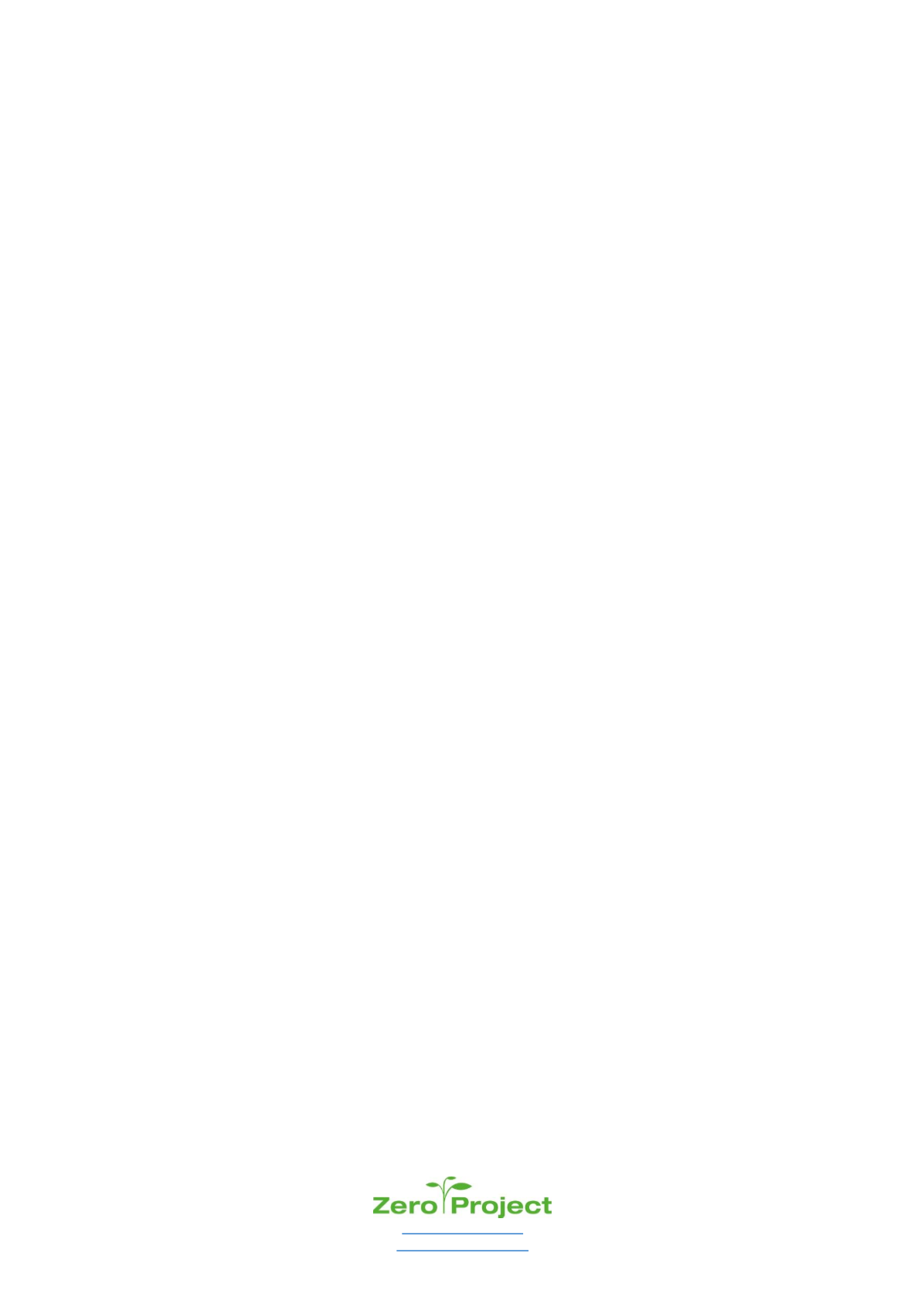
 www.zeroproject.org
office@zeroproject.org
www.zeroproject.org
office@zeroproject.org
310 – Ireland’s standard on Universal Design for Customer Engagement
in Tourism Services of 2013, and Toolkits, Ireland
Responsible body:
National Standards Authority of Ireland, in collaboration with the Centre for
Excellence in Universal Design of the National Disability Authority and Fáilte
Ireland
Country of implementation:
Ireland and the UK
Beneficiaries targeted:
Tourism customers with disabilities, the elderly
S
UMMARY
Ireland’s Standard on Universal Design for Customer Engagement in Tourism Services of 2013 is voluntary and provides
an industry best-practice reference on design requirements for the application of Universal Design by Tourism Service
Providers. It outlines Universal Design requirements that facilitate positive customer engagement through the provision
of products and services for communications that can be easily accessed, understood and used by tourism customers.
For each section - written communications, face-to-face communications, electronic and web-based communications,
the Centre for Excellence in Universal Design (CEUD) developed easy-to-use Toolkits, along with four compelling
business case studies.
C
ONTEXT
/P
ROBLEMS TARGETED
(W
ITH
A
DDITIONS FROM THE
Z
ERO
P
ROJECT
T
EAM
)
In collaboration with the Centre for Excellence in Universal Design, the National Standards Authority of Ireland and
Fáilte Ireland, the Irish Standard I.S. 373:2013 on Universal Design for Customer Engagement in Tourism Services was
published in 2013.
A suite of Toolkits was also developed to provide necessary guidance to tourism providers on how to implement the
standard to apply Universal Design in the development of products and services for their customers covering written,
verbal, web based communications with an additional module outlining the benefits from a business perspective. The
Standard and Toolkits were developed through an extensive consultation process with key stakeholders from tourism
and bodies representing people of age, size, ability and disability, hosted by the CEUD. The standard development
working group (No. 6 on Universal Design for Services) of the National Standards Authority of Ireland was co-chaired by
the CEUD and the Equality Authority. A list of all Disabled Persons Organization involved is contained in Annex J of the
standard. In addition, the three workshops used in developing the Toolkits included persons with disabilities and other
users with diverse communications needs such as people whose first language is not English and older people.
As a follow on to the standard and Toolkits the CEUD undertook to provide evidence to the tourism sector on the
business advantages of adopting a Universal Design approach to customer communication through developing 4 case
studies with tourism operators in Ireland.
















